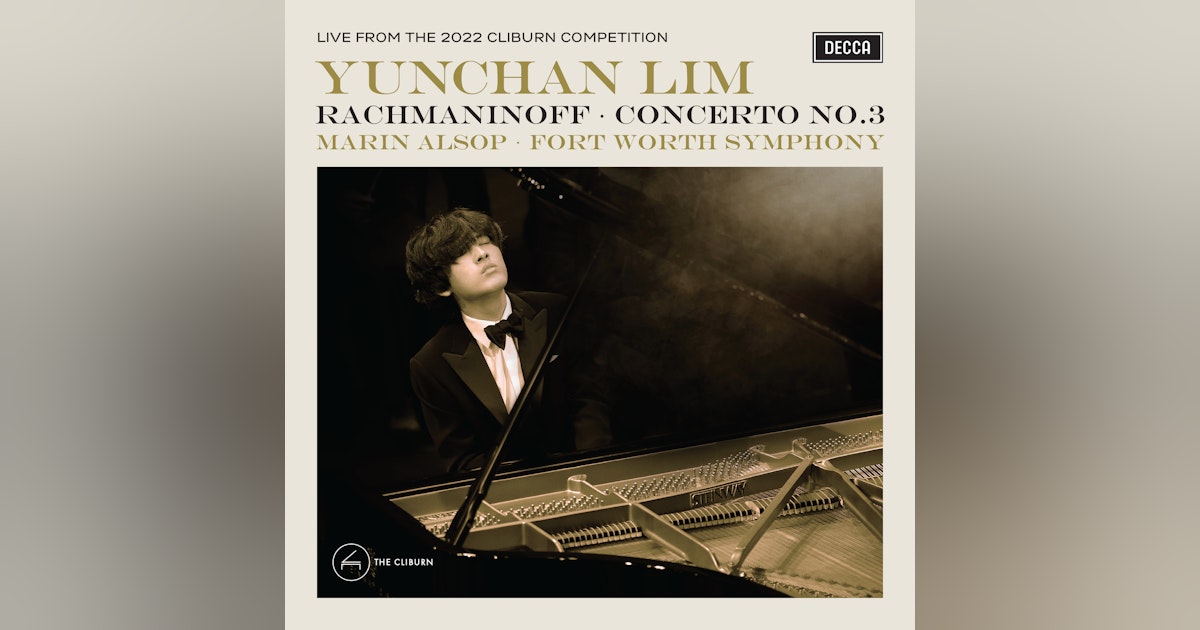
Yuncham Lim cerainly made waves wt this performance: live at the 2022 Van Cliburn International Piano Competition. He was 18..
Lim’s debut studio album Chopin Étude was the subject of a post on Classical Explorer here.
Dominic Fyfe, Label Director, Decca Classics, says:
The creation of a recorded legacy on Decca Classics was at the heart of our conversations with Yunchan from the very beginning. These two albums are already milestones in his career and each affords us the opportunity to own a piece of history. They document his artistry in both live and studio settings, capturing the hypnotic music-making which has become Yunchan’s signature.
Re the Rach 3, conductor Marin Alsop described Lim as, “an old soul, rather than a young performer.” British pianist and jury member Sir Stephen Hough called him …
… a preposterously gifted pianist… he understood the rhetoric, the scope, the personality of Liszt. It isn’t speed but a kind of inner charisma.
Fellow juror Jean-Efflam Bavouzet said, “We didn’t talk, but our eyes said it all,” while Anne-Marie McDermott shared, “About halfway through the first movement… we just knew: we’re experiencing something magical here.”
In November 2024, Lim performed a Tiny Desk Concert for NPR, featuring works by Liszt and Tchaikovsky.
And so to the performance itself. Right from the off, there is a sense almost of chamber music; the interaction of the octave line in the piano against the woodwinds (which Alsop shapes so carefully). Interesting how the horn doubling of the line subsequently sounds a little like a saxophone (memories of an ancient Richter Rach 2 horn solo that sounded for all the world like a sax!). Lim uses less pedal than may, and there is a translucent clarity to his semiquaver work; the pedal can induce an end-of-phrase softening, for example. This is one of this performances where, from the pianist’s perspective at least, everything is perfectly in place.
Another aspect is the use of gesture: Lim seems preternaturally aligned to this, so individual gestures make perfect sense, always. Plus, the quiet moments are just as impressive as the stormy, hyper-virtuoso cadenza. is interesting how Lim points to Rachmaninov’s debt to Liszt, while maintaining Rachmaninov’s inequity of language.
The balance of extroversion and introversion in the Intermezzo (Adagio) is perfectly caught. Plus her his the most delicious dancing moment around high minutes in, as refreshing as cold spring water and really unexpected.
The finale is fast, for sure: and yet, controlled, a kind of pianistic death-defying high-wire act. And again it is the play of light and dark, of lightens nd power, that transfixes. nowhere more in the work’s final minus, a diminuendo into the depths before the final approach to the close. The audience goes nuts at the end; as well they might, and good for Decca for keeping that in.
The recording favours the piano; but in a sense this is Lim’s show and he coutclasses Alsop ndteh Fort Worth payers, anyway. The recording was recorded by Tom Lazarus, with put from Decca by Philip Siney.
Here’s a YouTube of the Decca album audio; video of the performance below, with movement times:
00:30 I. Allegro ma non tanto 17:56 II. Intermezzo: Adagio 28:51 III. Finale: Alla breve
Various streaming options are available HERE.
This disc is currently available at 16% off at this Amazon link. Direct iDagio link below.











